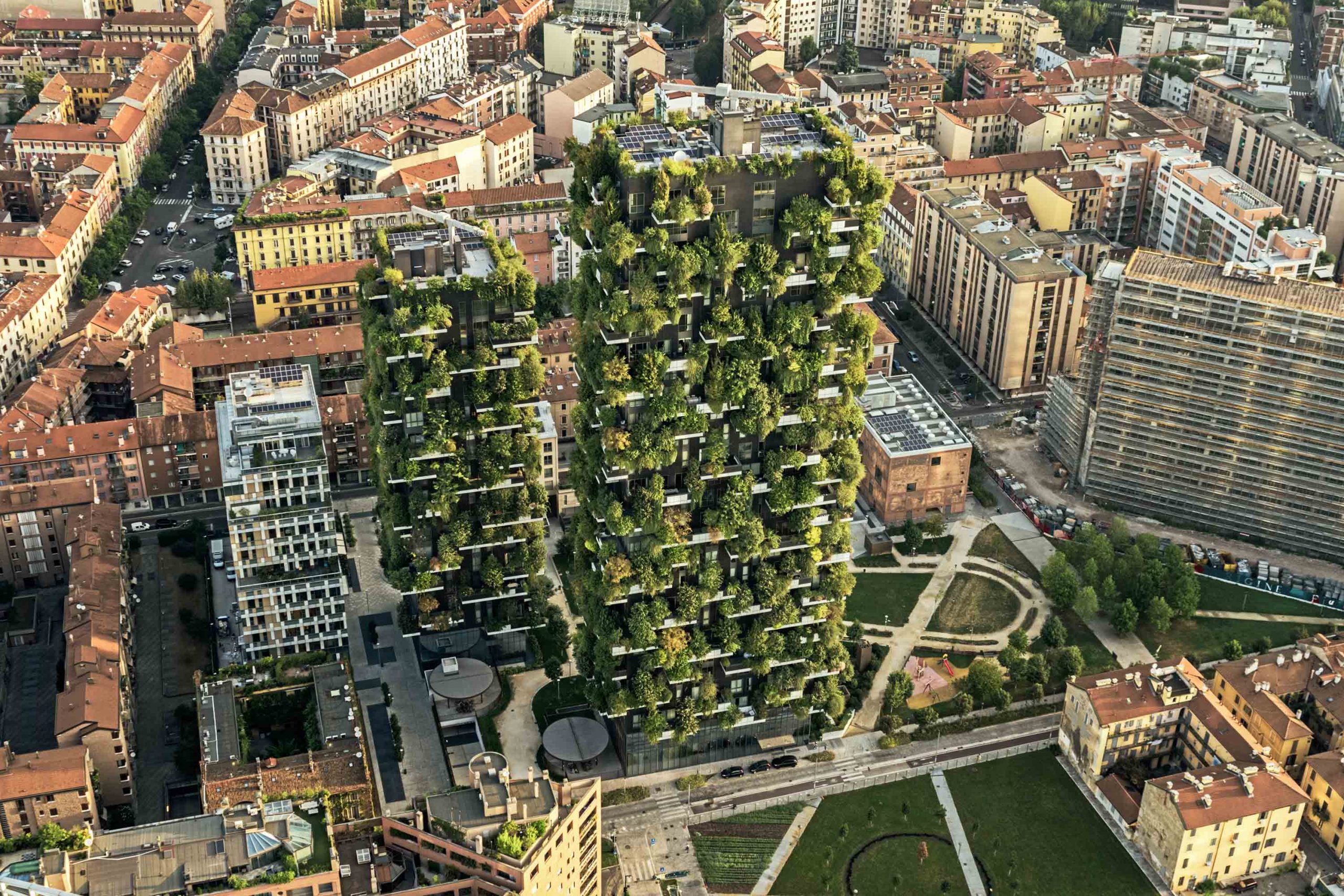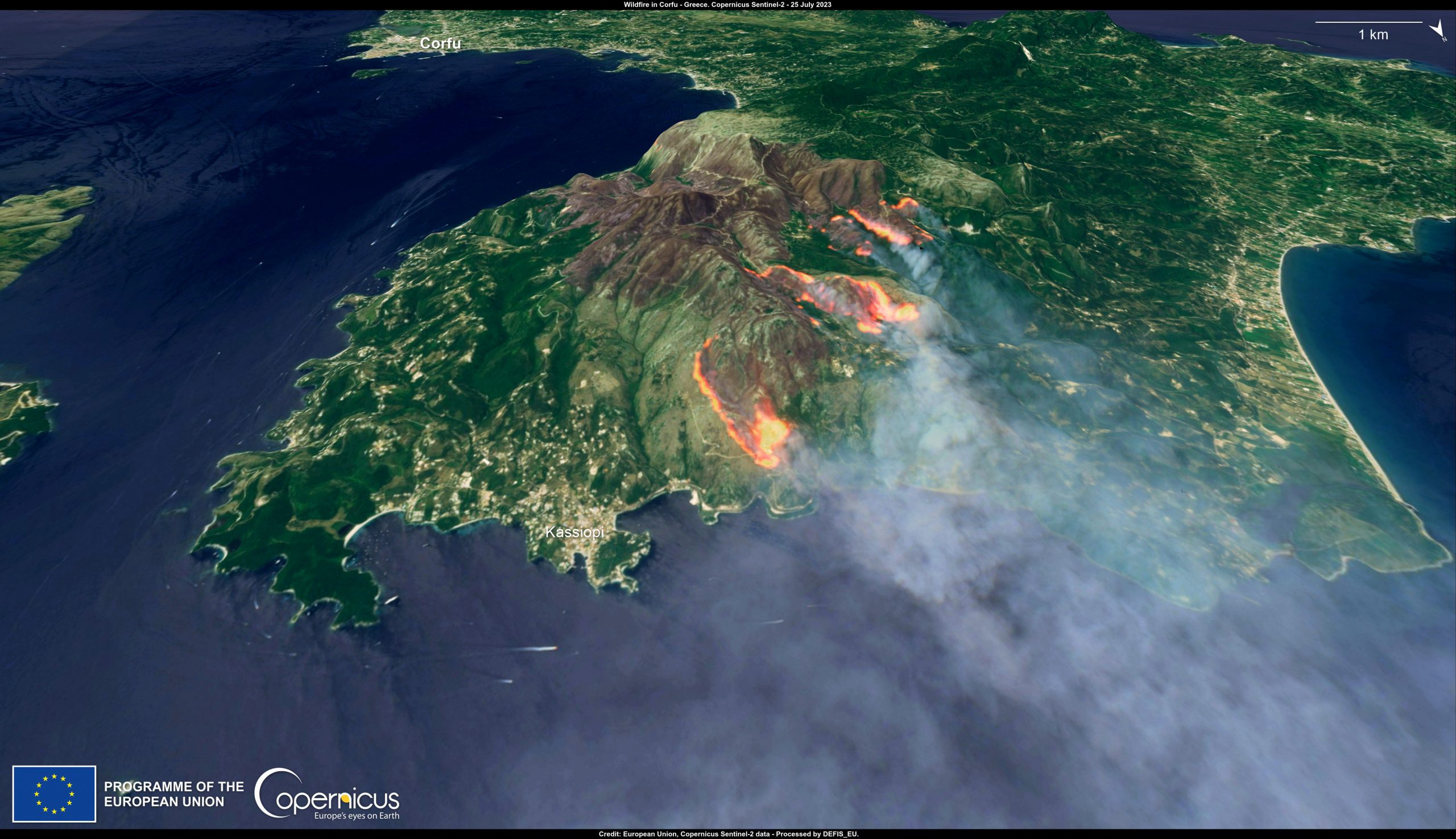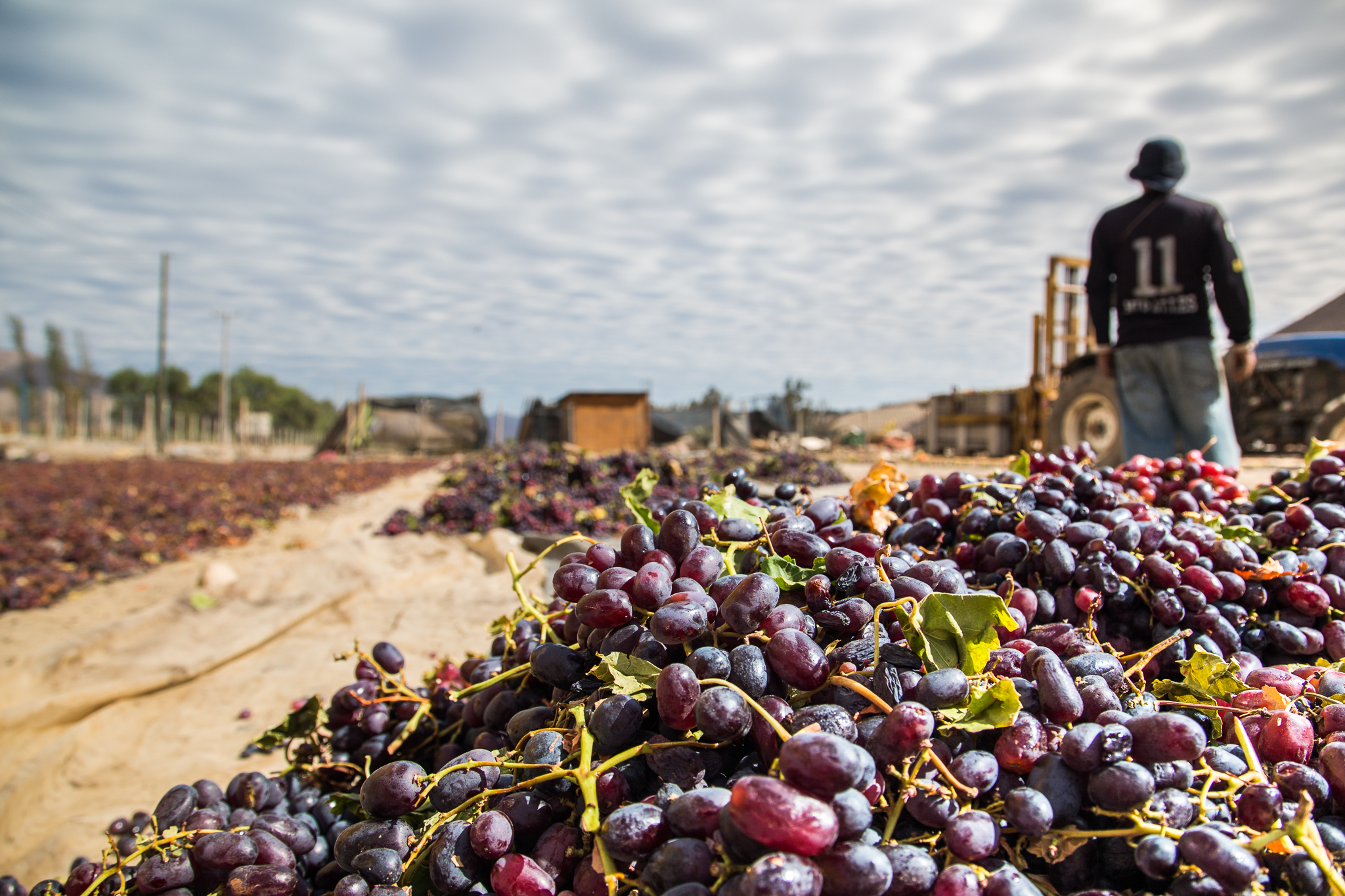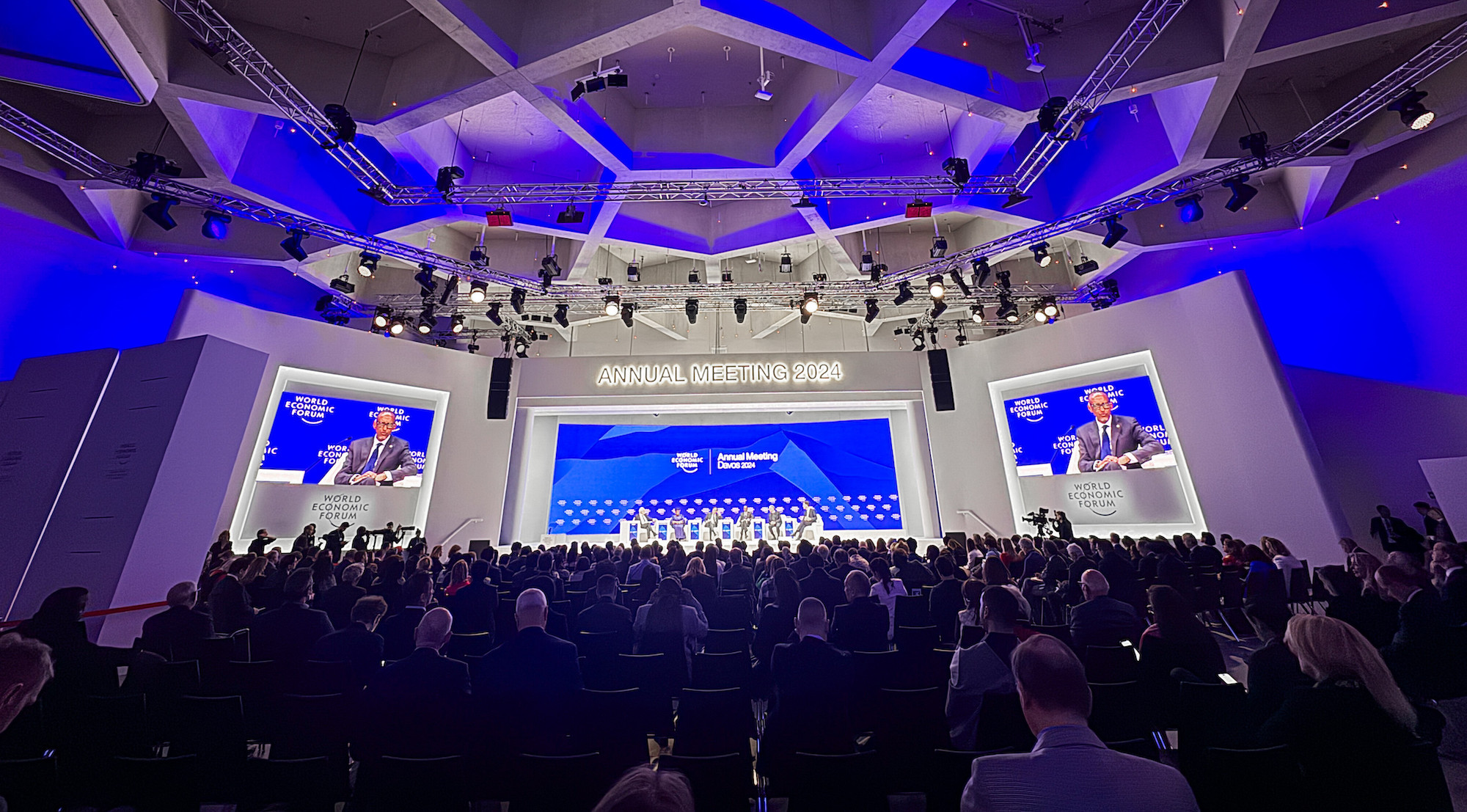There are companies, investors and shareholders. There are the future generations, activists, and indigenous populations. All under the umbrella of local and global policy. Our common future demands changes which are informed by science. It is about climate change, the Paris Agreement, the UNFCCC negotiations, the future of nature and biodiversity, and disaster risk reduction under the Sendai Framework. It is about sustainability, and the Sustainable Development Goals.
The global transformation that is taking place involves everyone on earth and is being enacted through different means and by different actors. “Our role as communicators is to make the connections. I see my role as being able to connect the dots, bringing people together, facilitating, brokering relationships. I think that a lot of communicators have that ability: we see things from a more holistic perspective,” says Ione Anderson.
The role of communication is to fill in the spaces between what we do and know and what we must achieve to continue to live life as we know it.
Journalist and communication specialist by training, Ione Anderson, is perfectly placed to make those connections with her background in international diplomacy and track record at the science to policy nexus in the fields of climate change, biodiversity, and sustainable development. Executive producer of the documentary film “Amazonia 4.0, The Reset Begins”, shortlisted as one of the best climate change communication projects in the first edition of the CMCC Climate Change Communication Award “Rebecca Ballestra”, Ione Anderson acts at the interface between science, policy and public opinion, while her experience in the private sector as co-founder of a consultancy that works in partnership with investors and businesses to develop climate change and sustainability strategies, adds another dimension to her ability to interpret and explain our changing world.
What does climate change communication from a “holistic” perspective mean?
Climate change communication means raising awareness, first and foremost. We can’t understand what we don’t know – and we can’t manage what we don’t measure.
I’ve been following climate change from different angles for over two decades. I would say that we have made very good progress raising awareness about climate change thanks to visual aids: we are watching, we can see, we can measure the impacts that everyone around the world is experiencing, from extreme hot summers to stronger than usual storms, winds, floods.
If fifteen years ago climate change didn’t mean much to a lot of people, today we are seeing more action from youth groups (thanks to Greta), indigenous and local communities (who are feeling the impacts firsthand), companies that are recognizing that climate change is a financial risk and governments that have committed to national actions as part of their commitments to global agreements. In that sense, we are more aware.
That’s the beauty of communication, it provides us with a space to think and speak freely, to share ideas, data and knowledge in search of solutions that can guide policy and inspire sustainable ideas.
Beyond the goal of raising awareness, what is the next step in the evolution of climate communication?
Now, more than ever, communication needs to show voters that this topic is a top priority, as well as convince CEOs and shareholders that we won’t reach our goals and commitments without climate action and innovation. Now that we are all aware (but not necessarily educated) about climate change, we need to be more diligent about communication that will inspire and prepare for change. We need to make it clear that floodings will worsen if government policy does not address ways to prepare for future climate impacts on infrastructure, for instance. Or that shareholders won’t see financial returns if their investments disregard climate risk for the companies and their supply chain. We now need to focus on climate solutions with a look to the future. We know what we need to avoid: warming that will trigger irreversible tipping points.
Communication, both internal – in government agencies to public servants and communities, from companies to their supply chains, investors and consumers, and schools teaching current and future generations – and external – the media, organizations, foundations, and the arts – can be a tool to address and inspire change.
Has communication around climate and sustainability topics changed over the course of your career and what new challenges and obstacles is it now faced with?
Less than 30 years ago, as a recent graduate in journalism working for a global newswire agency, environmental news wasn’t considered hard news. My curiosity back then raised questions like, how could I cover commodity news and impacts to trade and global prices without exploring the environmental changes that were affecting crops? There wasn’t enough space devoted to that discussion.
Fast-forward to 2022, and climate change is on the front page of every news outlet.
I see my role as a communicator as being able to create and produce content that can inform and inspire people, with apolitical messages that raise awareness with messages grounded on data and realistic optimism.
As for one of our current challenges, one that is central to my current work involves advising companies on sustainability/climate/ESG strategies. I worked as an international civil servant for over two decades developing a growing curiosity for the private sector perspective. With all the other changes that we were all facing in 2020, the moment seemed ideal for a career change, one that would allow me to apply and implement all that I had learned from work at the nexus of science and global policy, to guide corporate strategies and action, that could be based on the best available science.
Sharing information about the sustainability leadership of companies that are providing solutions with less emissions, less pollution, less waste while still able to generate profit can guide and inspire consumers, employees, and their whole supply chain. The focus of our mission should be on the innovations that we need to transition to a future that is sustainable for everyone.
In response to the argument that corporate elites can’t decide what is right for societies at large, the answer is that this is everyone’s decision and governments can’t meet their climate commitments and goals without them. We should look at a company’s profit assessing the company’s environmental and climate risk.
Sustainability is an issue that transcends politics and financial risk. Companies and investors must see that working with biodiversity is a way to save natural capital. It’s a no-brainer. The role of communication is to fill in the spaces between what we do and know and what we must achieve to continue to live life as we know it.
You are about to launch a new documentary that you produced and directed “Mata Atlantica 2030: The Next Frontier”. What is the “next frontier” and how did you build it?
With “Mata Atlantica 2030: The Next Frontier”, I wanted to raise awareness about what the next frontier is for sustainable development. In many ways, the Atlantic Forest was the first frontier of unsustainable development in Brazil, where today 70% of the Brazilian population lives. My vision was to make this short documentary film as inclusive and accessible as possible. I was inspired by the music of an urban indigenous choir from that region and wanted to weave local indigenous music into the film. “Mata Atlantica 2030: The Next Frontier” explores the limits of development and adaptation for this Brazilian biome. This is a forest that interacts with the population, interacts with biodiversity and relies on its natural resources for the production of goods and services. Because the Atlantic Forest is very close to all urban centers in Brazil, we all have a responsibility for the maintenance of this biome.
The film, produced by me and my Grape ESG Co-Founder, Ricardo Assumpcao, is narrated by Indigenous leader, writer, and activist, Ailton Krenak, who is widely regarded as one of the great leaders of the Brazilian Indigenous movement.
We interviewed academics, scientists, private sector representatives, indigenous leaders and hope that this short documentary film will appeal to a general audience. I wanted to make this an inclusive discussion that engages and inspires people to think outside the box. I see my role as a communicator as being able to create and produce content that can inform and inspire people, with apolitical messages that raise awareness with messages grounded on the best available data and realistic optimism.
That’s the beauty of communication, it provides us with a space to think and speak freely, to share ideas, data and knowledge in search of solutions that can guide policy and inspire sustainable ideas.
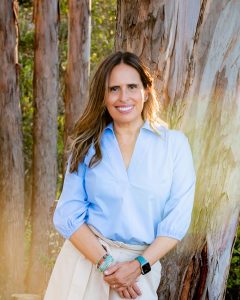
Ione Anderson is Co-Founder and Strategic Partner of Grape ESG, a company that works in partnership with investors and businesses to develop climate change and sustainability strategies, incorporating ESG factors into operations and investment decisions.
She has a purposeful international diplomatic career and track record at the science to policy nexus, strategic communications, overseeing comprehensive operations in the fields of climate change, science to guide policy, biodiversity, sustainable development. She’s acted as the focal point for the United Nations Framework Convention on Climate Change (UNFCCC), the Intergovernmental Panel on Climate Change, the Convention on Biological Diversity, Intergovernmental Science Policy Platform on Biodiversity and Ecosystem (IPBES) and the UN High-Level Forum on Sustainable Development.
Ione Anderson was part of the panel at the “Deep into the Future Planet: Journalism, Media and Narratives of the Climate Crisis” event, organized by the CMCC Foundation on Friday 11 November 2022 at COP27 in Sharm el-Sheikh, Egypt.



